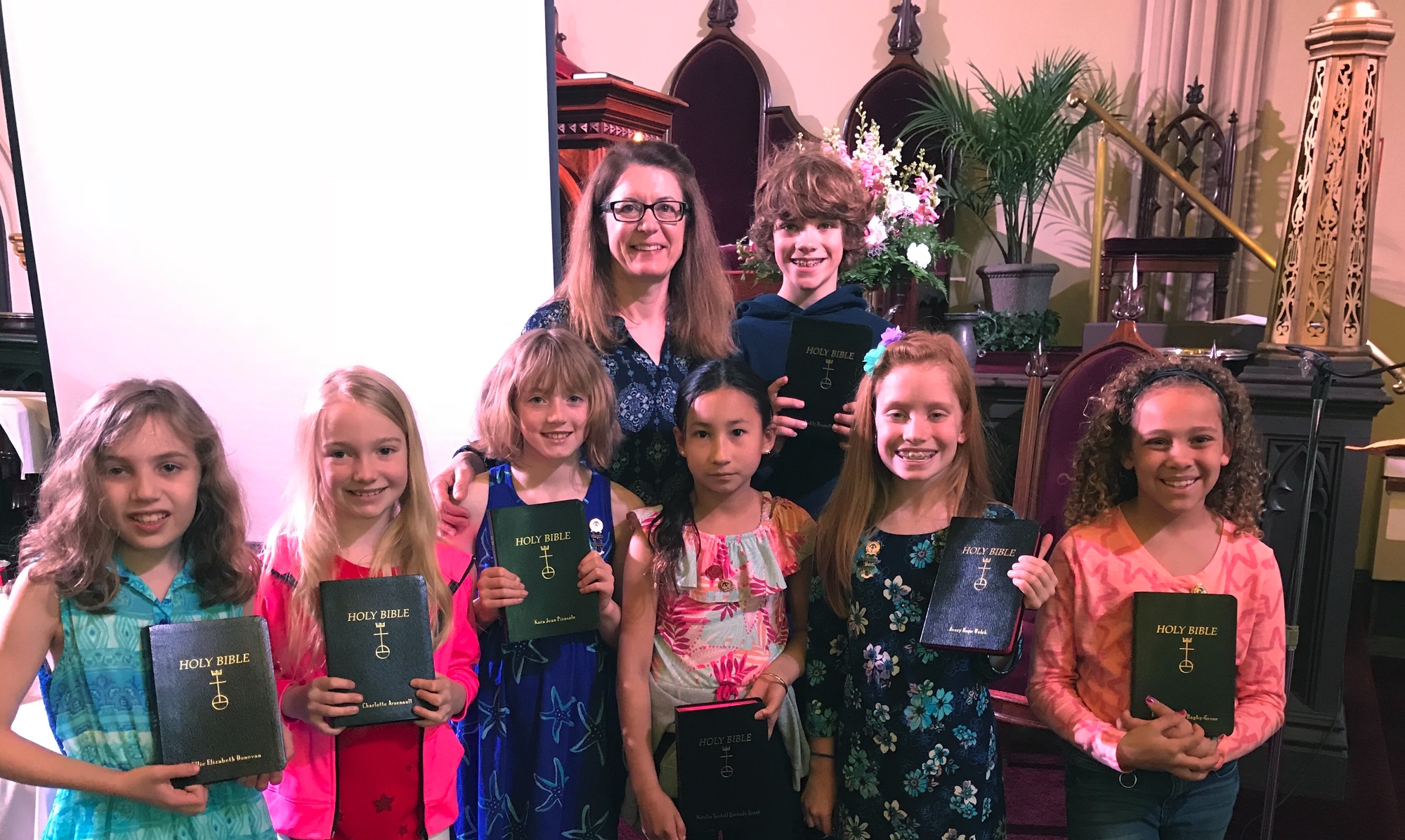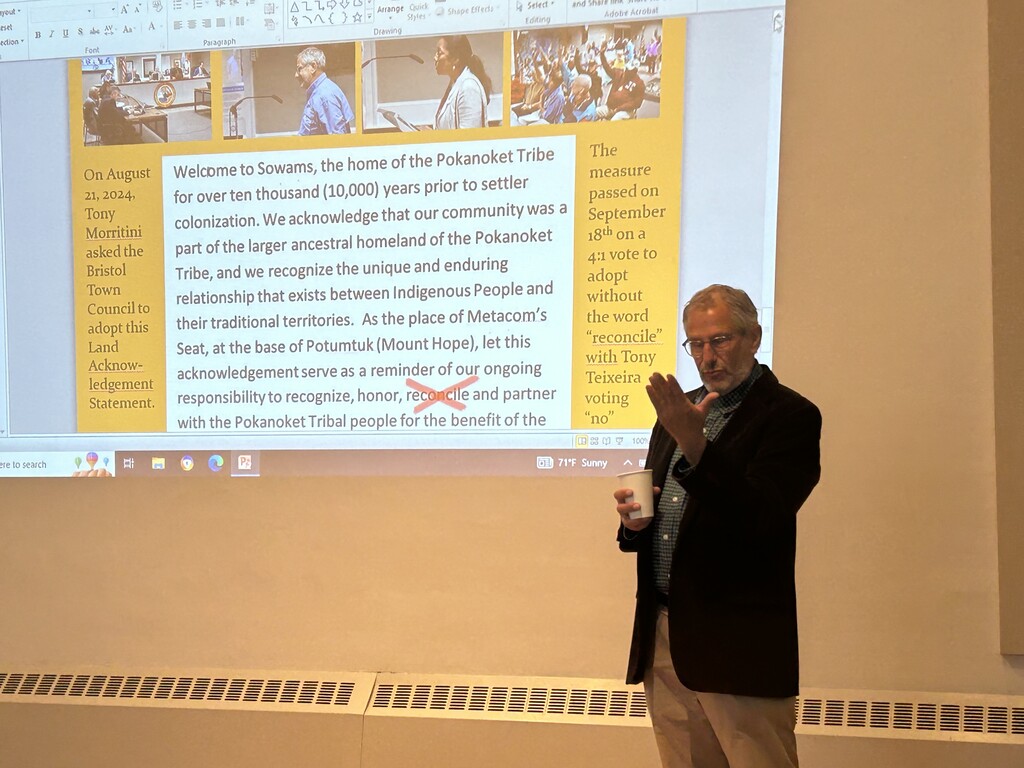FCC Bristol was honored to have Dr. David Weed as our speaker on October 6, 2024. Dr. Weed is the Coordinator of the Sowams Heritage Area Project, an effort to recognize Sowams as the homeland of the Pokanoket and Wampanoag peoples and to seek to better understand their pivotal role, both past and present, in the history of the East Bay region. Dr. Weed has worked for years to understand the history of the Pokanoket people and King Philip’s War, which broke out in 1675 after the failure of a 50-year long peace treaty between the indigenous tribes and the colonial settlers. The Sowams Heritage Area Project seeks to lift up the life and culture of the indigenous tribal peoples in our history.
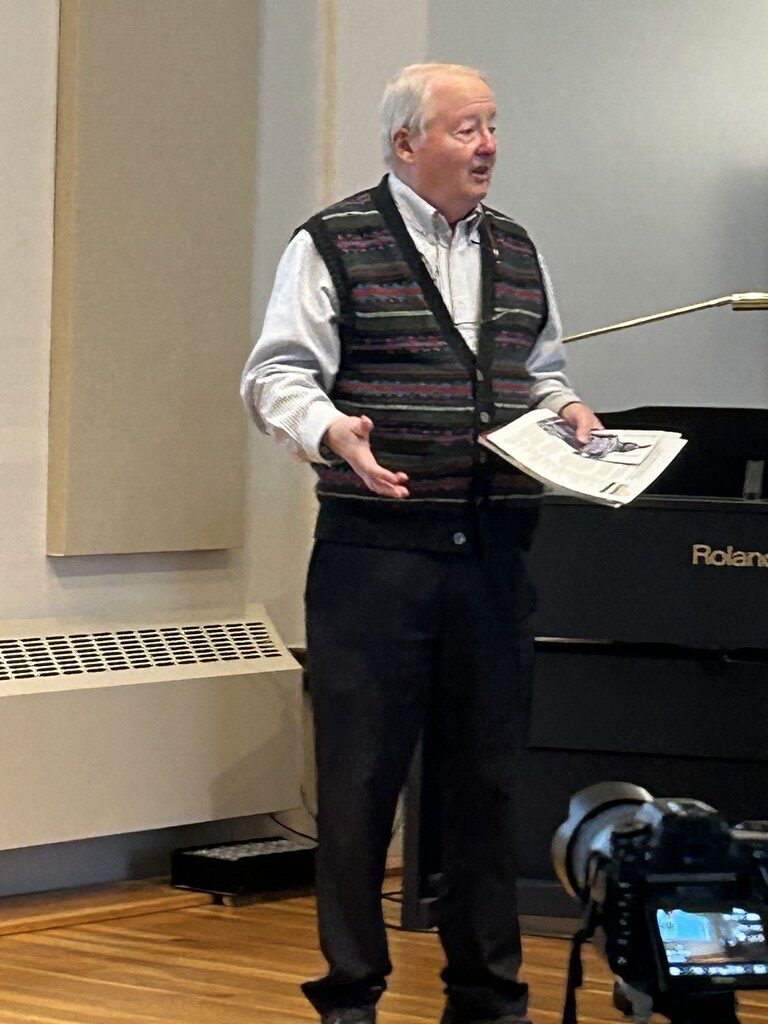
Dr. Weed alluded to the interpretive sign in front of our church, which speaks to the beginnings of the town of Bristol. He stated that the land on which the town of Bristol sits represents “ground zero” in an American genocide, and went on to tell the story of the long relationship between the indigenous peoples and the colonizing Europeans. The settlers, arriving in 1620 at Cape Cod and Plymouth, would have died without the major support of the native Americans, who provided food, health care and shelter. By 1675, however, the treatment of the tribes by the Europeans, including their major land grabs of tribal territory, resulted in conflict. In an effort to fend off hostilities, a meeting was held between tribal leaders and the settlers on the shoreline of Mount Hope to air the grievances of the Pokanoket. It was not successful, as the Europeans gave no legitimacy to the tribal complaints. Settlers saw the indigenous peoples as heathen and satanic animals, not fully human. King Philip’s War broke out on June 21, 1675 in what is now Warren, RI and ended with the death of King Philip, also known as Metacom, in 1676 at Mount Hope in Bristol. After the founding of this Congregational Church in 1680, the majority of the land in Bristol was simply taken from the Pokanoket homelands. Native genocide followed.
Only in the past few decades has reconciliation been attempted. Dr. Weed challenged the congregation to engage through Christian love in efforts to move this reconciliation forward — to love the people who once were seen as enemies, to seek to restore justice and to lead the community in greater understanding and healing.
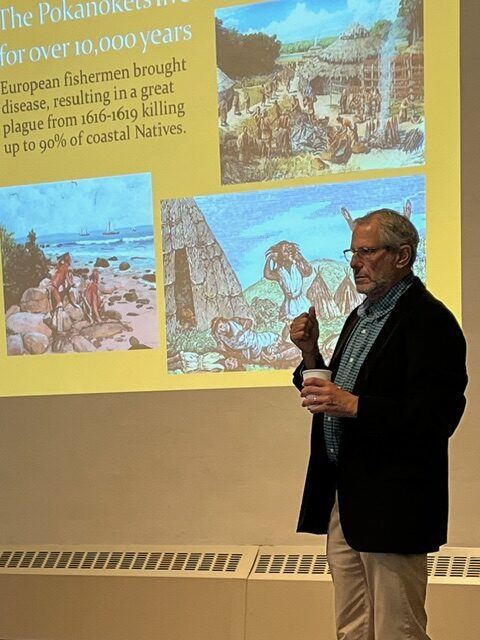

During Fellowship Hour on October 6, following worship, FCC member Tony Morretini and Dr. Weed provided further information about some of these efforts to provide healing. Tony spoke about his successful efforts to have the Bristol Town Council adopt a Land Acknowledgement statement relating to Indigenous tribal habitation for more than 10,000 years prior to the arrival of Europeans of the land on which the town of Bristol sits . The proposed statement was presented to the Council on August 21, 2024 and adopted on September 18, 2024 on a 4-1 vote, with the deletion of the word “reconcile.” As Dr. Weed suggested in his presentation to the congregation, our members have the opportunity to work toward that very “reconciliation” that was removed from the Land Acknowledgement statement adopted by the Bristol Town Council.
